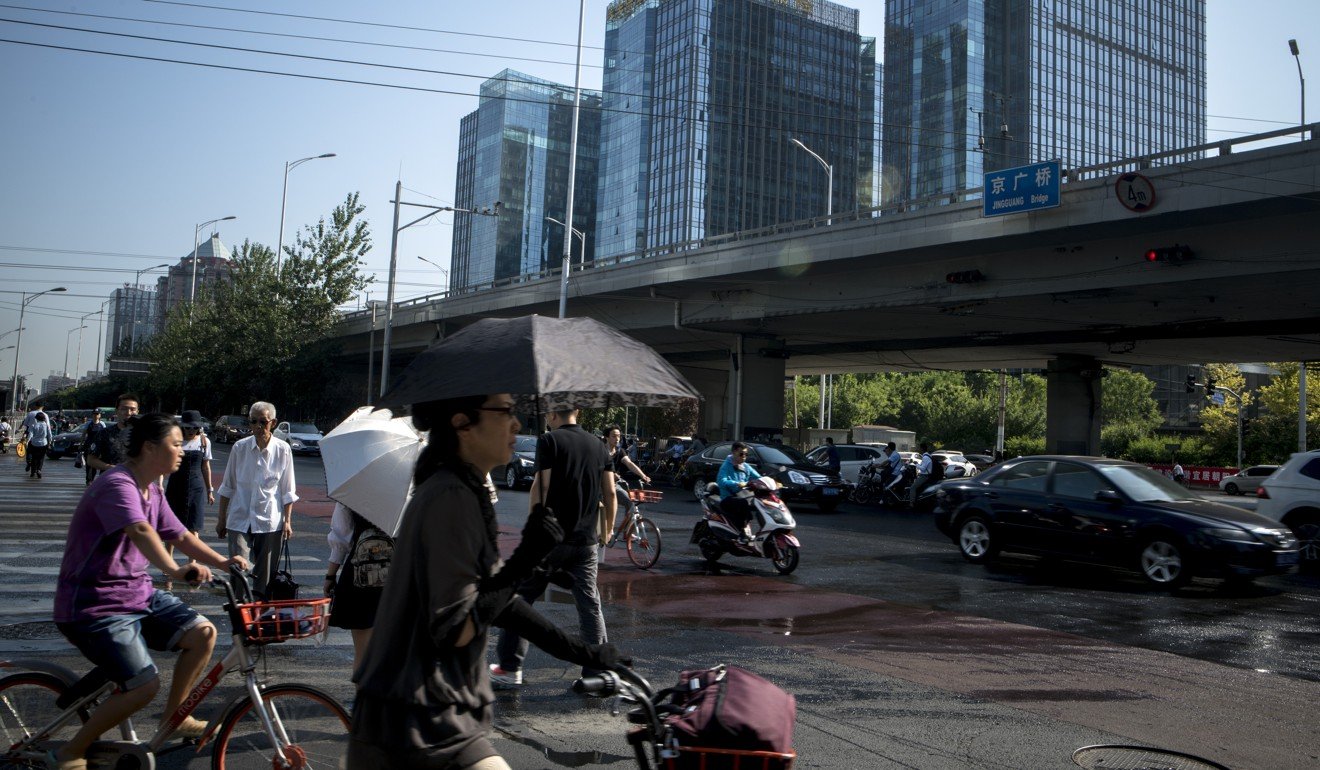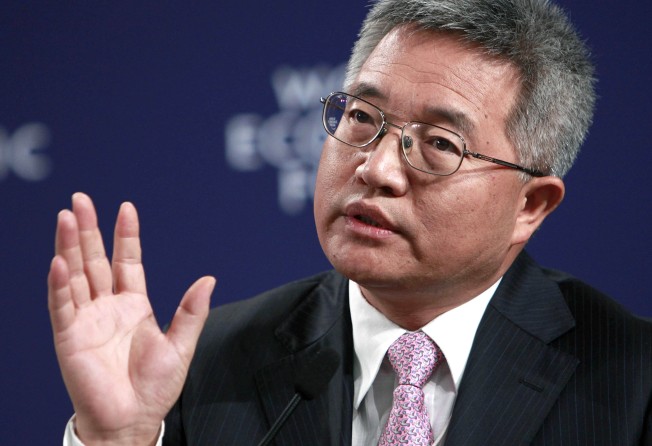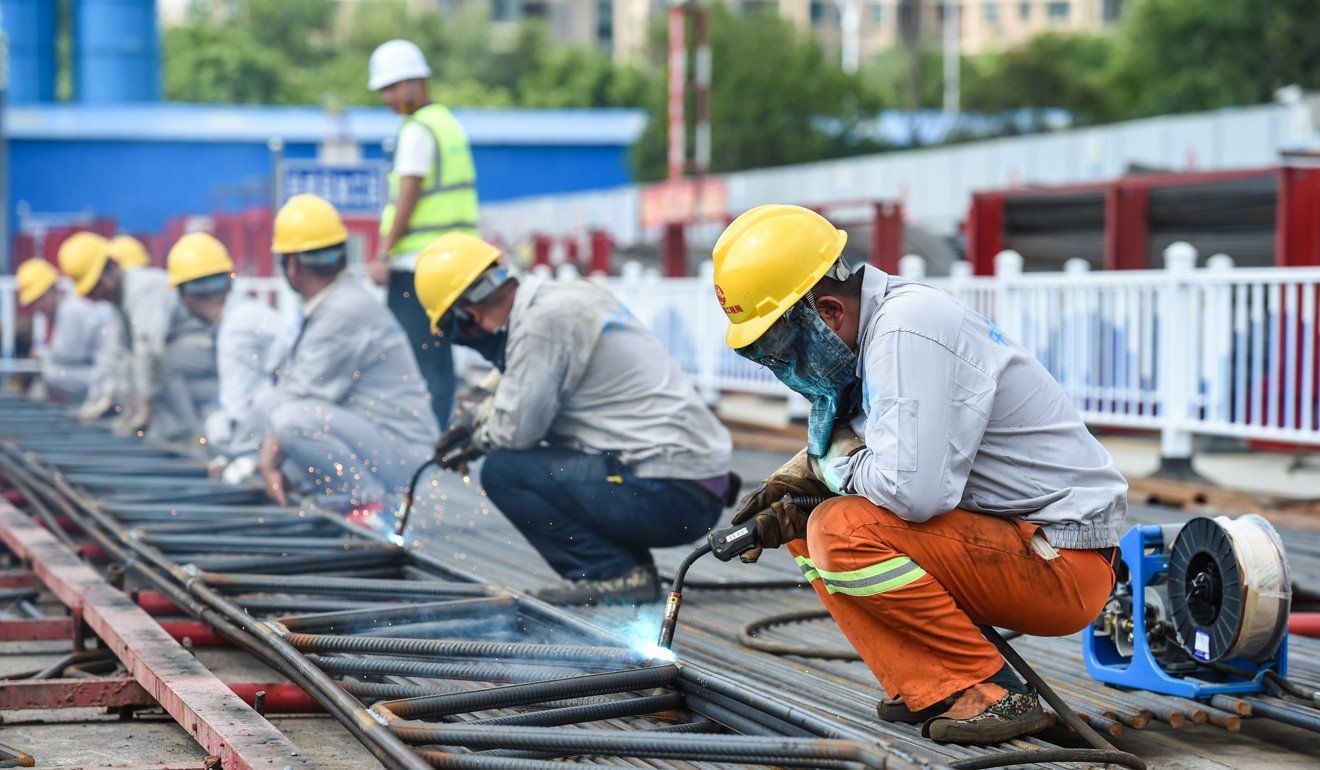
Economist Zhang Weiying slams ‘China model’ that ‘inevitably leads to confrontation with the West’
- Zhang Weiying’s speech lashes out at those who use the theory to explain country’s economic success over the past four decades
- Peking University professor says the notion is factually wrong and dangerous

Using the “China model” to explain the country’s economic success over the past four decades is wrong and dangerous, according to an influential Chinese economist, who says this misconception has inevitably led to antagonism between China and the West.
Zhang Weiying, one of the most prominent liberal economists in the country and a professor at prestigious Peking University, made the comments in a lecture on October 14. An edited version of his speech was published on the university’s website on Wednesday.
The speech is a wholesale negation of the “China model” theory that has gained traction in recent years, as the country becomes more confident in promoting its own development path under President Xi Jinping.

Zhang lashes out at those who attribute China’s economic growth to an exceptional “China model”, which includes a powerful one-party state, a colossal state sector and “wise” industrial policy, saying it is not only factually wrong, but also detrimental to the country’s future.
“The theory of the ‘China model’ sets China as a frightening anomaly from the Western perspective, and inevitably leads to confrontation between China and the West,” he said.
“The hostile international environment we face today is not irrelevant to the wrong interpretation of China’s achievement in the past 40 years by some economists.”
Zhang did not immediately respond to an email seeking comment.
The economist’s rejection of the “China model” comes as debates about the country’s economic future are heating up. The world’s second largest economy is losing steam – growth is at its slowest pace since 2009 – as it marks 40 years since its market reforms.
At home, it is grappling with a mountain of debt, plunging stocks and an ailing private sector. Abroad, tensions over the prolonged trade war with the United States appear to be spilling over into defence, diplomacy and politics.
Zhang said the trade war not only reflected conflict between China and the US, but between China and the larger Western world. It also went beyond trade to reflect the clash over value systems, he said.
A strong believer in the free market, Zhang said China’s rapid growth in past decades stemmed not from the “China model” but a “universal model” which relied on marketisation, entrepreneurship and three centuries of accumulating technology in the West, as in the success stories of other developed economies.
Promoting the “China model”, he said, was misleading the world into hostility towards China.
“In the eyes of Westerners, the so-called ‘China model’ is equal to ‘state capitalism’, which is incompatible with fair trade and world peace, and therefore must be contained,” he said.
Moreover, it also risks hampering China’s own future, Zhang warned.
“Blindly emphasising the ‘China model’ would lead us onto a path of strengthening state-owned enterprises, expansion of state power and overly relying on industrial policy, which would lead to a reversal of reform progress, wasting previous reform efforts, and the eventual stagnation of economic growth,” he said.
Zhang’s assessment came amid widespread concerns and confusion over China’s future path. Its private economy, which contributes about 60 per cent of the country’s GDP, is losing ground to the state sector and slipping under the increasingly tight grip of the ruling Communist Party.
Chinese leaders and state media have repeatedly sought to allay fears by telling private enterprises of the party’s “unswerving support”, but observers said entrepreneurs were unlikely to be reassured, as they were more focused on action than rhetoric.

The transcript of Zhang’s speech had been shared widely on Chinese social media before it was censored late on Wednesday night, but it remains on the university website.
The “China model” has been a popular term since Beijing successfully held its first Olympic Games in 2008 and weathered the global financial crisis, which battered most Western economies.
Suisheng Zhao, director of the Centre for China-US Cooperation at the University of Denver, said the term was part of the “discourse of greatness” at the time, which included others like “the China miracle” and “the rise of China”.
“But the Hu Jintao-Wen Jiabao administration avoided endorsing the ‘China model’, reflecting a hesitancy to engage in ideological debate and a concern over the emerging perception of the ‘China threat’,” he wrote in an essay last year.
The “China model” has again become a term of interest since Xi came to power in 2012 and called for the “Chinese dream” of national rejuvenation, Zhao said.
“Xi’s ‘China model’ promotes Chinese exceptionalism. According to Xi, because of China’s unique characteristics, only a quintessentially Chinese model can accommodate China’s national circumstances,” he wrote.
Although Xi has not directly spoken of the “China model”, he has repeatedly said that China should have confidence in its own path, instead of looking to imitate the models of Western countries.
At the 19th party congress last year, when Xi heralded the dawn of a “new era” for China, he confidently declared that other states should learn from “the Chinese solution for tackling the problems facing mankind”.